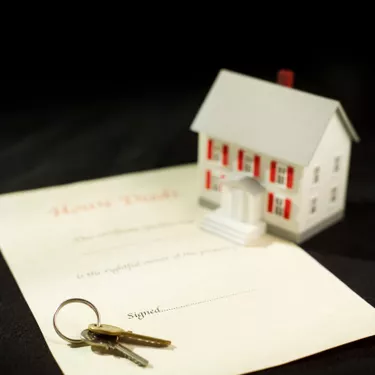
When you sell or otherwise reassign ownership of real property, you will typically use a deed of conveyance, which is a legal document that transfers real property from one party to another. Depending on the situation, you must use a specific type of conveyance deed.
Warranty Deed
Video of the Day
A warranty deed is the type of deed an owner uses to transfer real property. A warranty deed asserts that the issuer owns the property, has the right to sell it and is electing to transfer all of his interest in the property to the recipient of the deed. A warranty deed is the strongest deed of conveyance available.
Video of the Day
Quit Claim Deed
A quit claim deed is similar to a warranty deed because the issuer of the deed uses it to transfer all of his interest in a property to another party. However, the issuer of a quit claim deed does not claim ownership of the property or the right to transfer the property. This type of conveyance deed is used when ownership of a property is in dispute.
Deed of Trust
A deed of trust is a conveyance deed that transfers ownership of real property to a trustee that allows the current owner to continue to use the property. However, the trustee retains the right to foreclose on the property if necessary. Lenders may use this type of deed to secure their interest in real property until the borrower repays the loan.
Deed of Release
When a borrower pays the balance on a mortgage, the lender may issue a deed of release. This is a document that cancels the lender's deed of trust and revokes the lender's interest in the property. Most states require lenders to issue a deed of release within a certain time after the borrower has repaid the loan.
Beneficiary Deed
A beneficiary deed is a deed of conveyance that transfers the ownership of real property to a beneficiary in the event of the current owner's death. This type of deed conveys no interest in the property to the beneficiary while the current owner is alive.